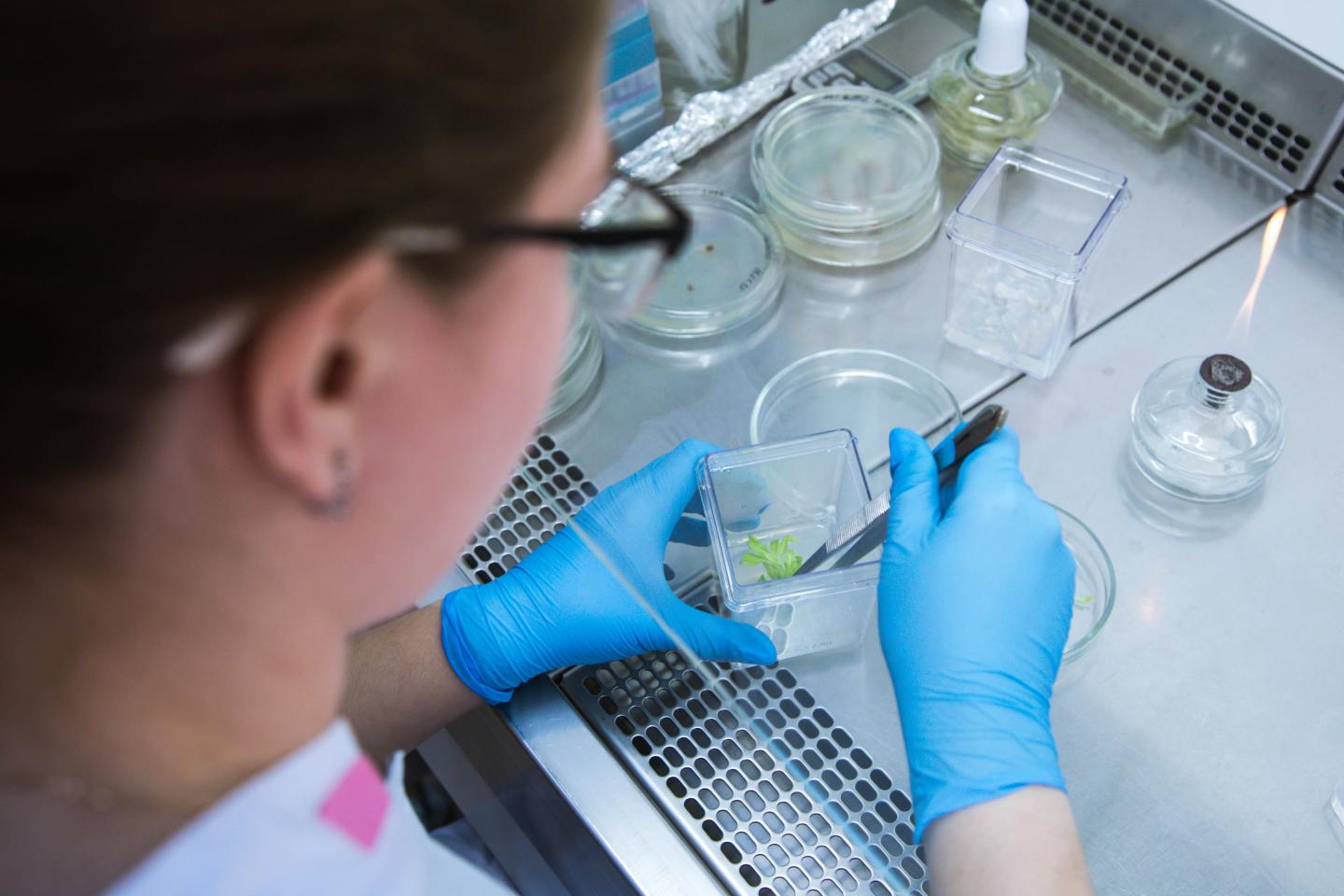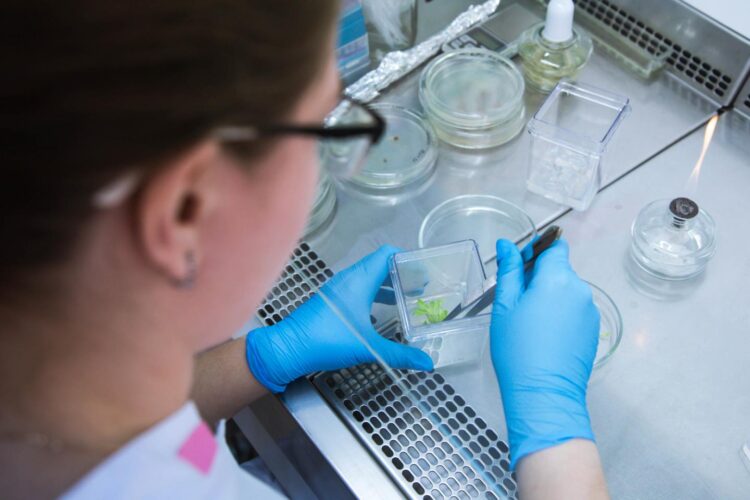The inherited disease of phenylketonuria is expressed in the inability of the body to absorb certain amino acids, mainly phenylalanine

Credit: Elena Buderkina
The inherited disease of phenylketonuria is expressed in the inability of the body to absorb certain amino acids, mainly phenylalanine.
A person affected by this disease has to follow a low-protein diet all his life. Otherwise, phenylalanine will accumulate in the body and can lead to severe damage to the central nervous system.
Recently, the scientific journal Pharmaceuticals published an article written by researchers of the Institute of Living Systems of the IKBFU and Kemerovo State University, which offers an effective way to treat this disease.
Olga Babich, Director of the Institute of Living Systems:
– The most promising medicine here is L-phenylalanine ammonium-liasis (PAL). However, this enzyme is unstable, it quickly dissolves in the acidic environment of the stomach before having had time to produce a positive effect.
Therefore, scientists have developed a stable capsule shell for PAL, which is broken down mainly in the upper parts of the intestine, which allows the enzyme to work as efficiently as possible.
Natural polysaccharides are proposed to create such a shell: agar-agar, carrageenan, carboxy-methylcellulose.
Experiments were conducted over a three-year period. The main difficulty was the correct interpretation of the results obtained using model biological fluids, since the behavior of the enzyme preparation in vitro (i.e. in a test tube) and in vivo can vary significantly.
According to Olga Babich, the obtained results will find application not only in the treatment of phenylketonuria, but also in the development of new methods for the treatment of other hereditary diseases associated with defects of amino acid metabolism.
It should be noted that the team of authors of the scientific article has good experience in implementing joint projects. In particular, it is the creation of food for children suffering from phenylketonuria and histidynemia, a hereditary disease caused by impaired histidine metabolism.
Besides, there have been implemented projects on the development of capsules for pharmaceutical preparations based on plant components (alternative to gelatin capsules). Thus, the development of the capsule form of L-phenylalanine-ammonium-liazyase is a part of complex research in the field of health saving conducted by a consortium of scientific organizations from Kaliningrad and the Siberian Federal District.
###
Media Contact
Denis Zhigulin
[email protected]
Original Source
http://eng.
Related Journal Article
http://dx.





